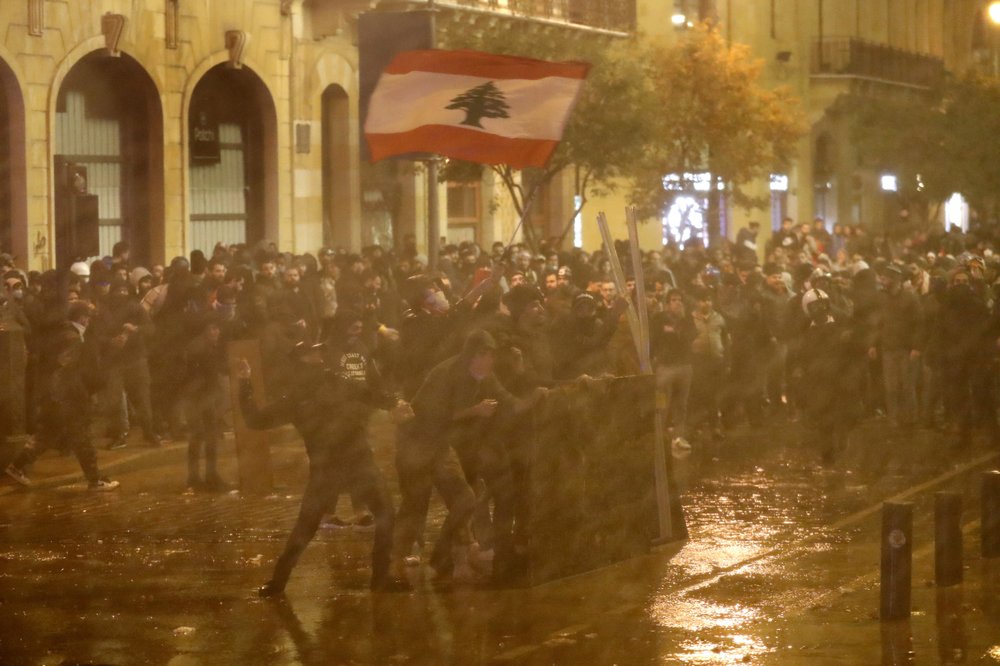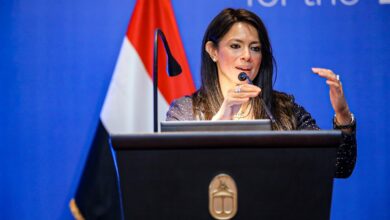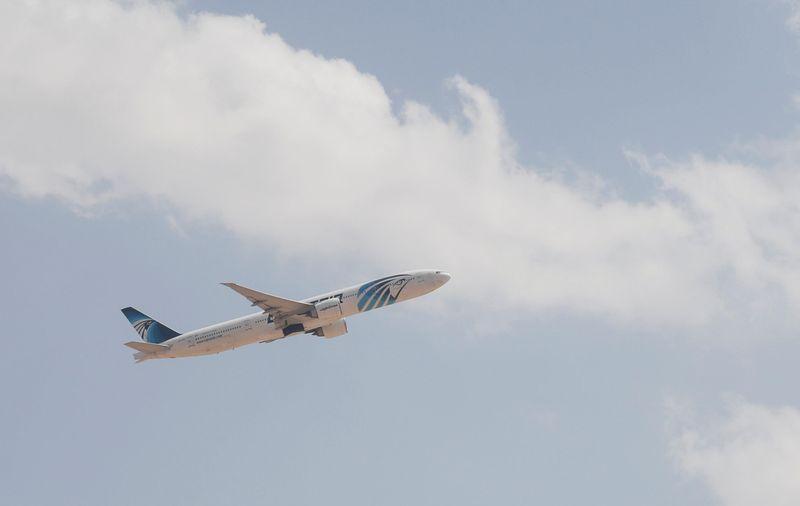
BEIRUT (Reuters) — The Lebanese government must swallow its misgivings and reach a rescue deal with the International Monetary Fund (IMF) or risk economic implosion and further turmoil, economists, diplomats and politicians said.
Privately, some government officials acknowledge that an IMF bailout is the most logical solution to Lebanon’s economic crisis, according to a source familiar with ongoing discussions.
But to get such a rescue program in place, the new government would have to overcome the objections of Hezbollah, the powerful Iranian-backed power broker in Prime Minister Hassan Diab’s cabinet and its Christian and Shia allies, who are concerned about the austerity measures an IMF rescue would involve.
As Lebanon’s financial crisis drags on and government revenues dwindle, the bill to rescue the country is rising. Former economy minister and ex-vice central bank governor Nasser Saidi estimates the economy will need $30 billion, and an additional $25 billion to recapitalise a banking system in hock to the state.
“Lebanon needs external liquidity both for the balance of payments but also for the government,” Saidi said. “That’s why the external package and the IMF reform program which comes with all the associated reforms which we need is so necessary”.
A $1.2 billion payment on a Eurobond is falling due on March 9 and even though Lebanon is widely expected to restructure its foreign-currency-denominated debt that is unlikely to be enough to deal with the total debt burden, economists and analysts say.
The IMF has estimated that Lebanon’s public debt would reach 155% of gross domestic product by the end of 2019, one of the biggest debt burdens in the world.
Any move to restructure will further pressurise local banks, which after years of funneling their deposits to the state, have an exposure to Lebanese sovereign debt that stands at almost twice their capital base.
The government could look at forcing depositors to take losses as another way to alleviate its burden. But the Lebanese banking system has been built on attracting deposits from overseas and grabbing such cash would make it more difficult for Lebanon to attract hard currency in future.
The banks have already seen deposits drain away, despite effectively imposing capital controls on ordinary savers, and urgently need to restock their balance sheets.
Lebanon hired U.S. investment bank Lazard (LAZ.N) and law firm Cleary Gottlieb Steen & Hamilton LLP last week as advisers.
But with inflation shooting up to 30%, the pound depreciating by 40% since October and the number of jobless rising every day, analysts say only a full IMF deal will unlock the tens of billions of dollars Lebanon now needs.
“The IMF opens doors to international assistance. An IMF program is inevitable”, said Toufic Gaspard, a former government and central bank economist.
“It’s likely Hezbollah will eventually accept an IMF plan because they have no other option. The alternative will be serious political and economic crises”.
The government said it was working its own rescue plan without resorting to an IMF program and was only seeking IMF technical assistance.
A senior Hezbollah official said that terms required by any IMF bailout would spark social unrest.
“The position is not towards the Fund as an international financial institution but on the terms offered to Lebanon, because they will lead to a popular revolution,” Hezbollah MP Hassan Fadallah told Reuters.
“Our position is against this type of program and not against the Fund as an organization.”
The IMF declined to comment, referring instead to a statement from last week when it said its staff had held five days of “very informative and productive” talks with Lebanese authorities, and stood ready to provide further technical advice as the Lebanese government formulated its economic reform plans.
Cleary Gottlieb Steen & Hamilton declined to comment. Lazard was not immediately available to comment.
PLAN B?
Some analysts argue Hezbollah will have to relent because its Shi’ite constituency, especially those who pad the public payroll, will be among the worst hit by economic collapse – and because the IMF is the only alternative to that risky outcome.
“Unless the right, responsible decisions are made, there’s a big collapse coming and it’s unknown what will come out of it: will it be the same Lebanon or a different Lebanon?,” said Alain Aoun, a senior member of the Christian Free Patriotic Movement party, a Hezbollah ally.
“The price for the Lebanese system will be very high, bigger than just a change of government,” said Aoun, adding that so far no party had presented a credible alternative to an IMF program.
Hezbollah’s Fadallah did not respond to a question about an IMF program being the only way to avoid economic disaster.
Corruption and bad governance are seen as root causes of Lebanon’s problems and the crisis, which has seen street protests against the ruling elite, represents the most serious threat to the country’s stability since the 1975-1990 civil war.
An attempt by the previous government to raise revenues by taxing WhatsApp calls ignited mass demonstrations that eventually prompted it to resign. An IMF bailout, which would require structural reforms, could however unlock funds from other sources.
European donors led by France, which has led previous efforts to ensure Lebanon’s solvency and stability, have held up a $11 billion package of loans for infrastructure agreed in 2018 because there has been no serious effort to reform the economy.
Western diplomats said they have avoided calling for Lebanon to seek IMF assistance, saying that must be a Lebanese decision but stressed that any Western emergency funding for Lebanon would only come as part of an IMF program.
They said Lebanese officials face an uphill struggle to persuade donors — who have coughed up billions of dollars in aid in the past — to believe in their willingness to implement a reform plan on their own.
“If they don’t think they need the IMF they need to navigate the waters differently but they don’t have a plan B,” said one of the diplomats. “You’re talking to a person who is about to drown”.
Reporting by Samia Nakhoul and Tom Perry; Additional reporting by Karin Strohecker in London and Andrea Shalal in Washington DC. Editing by Carmel Crimmins
Image: Anti-government protesters are sprayed by a water cannon as they clash with the riot police, during a protest against the new government, near the parliament square, in Beirut, Lebanon, Wednesday, Jan. 22, 2020 (AP Photo/Hussein Malla)




